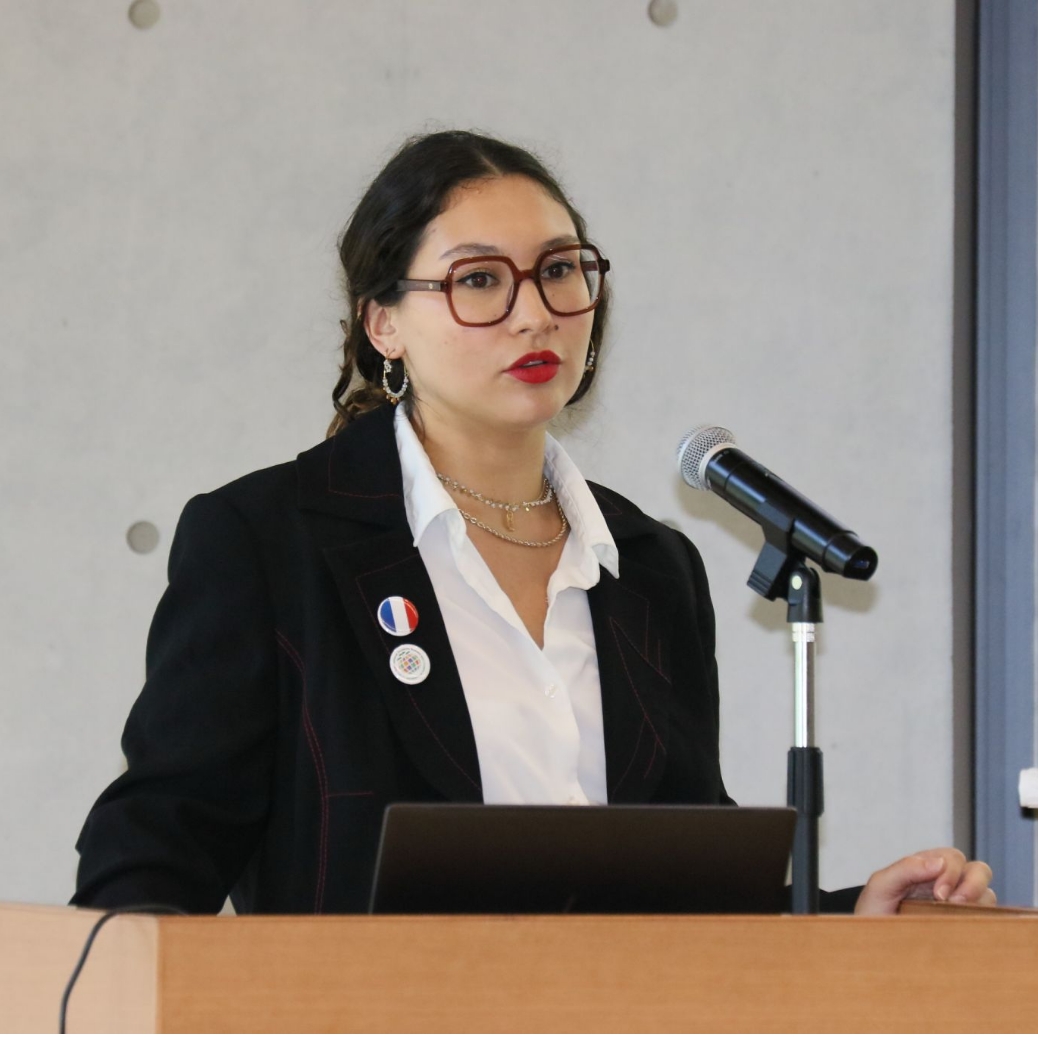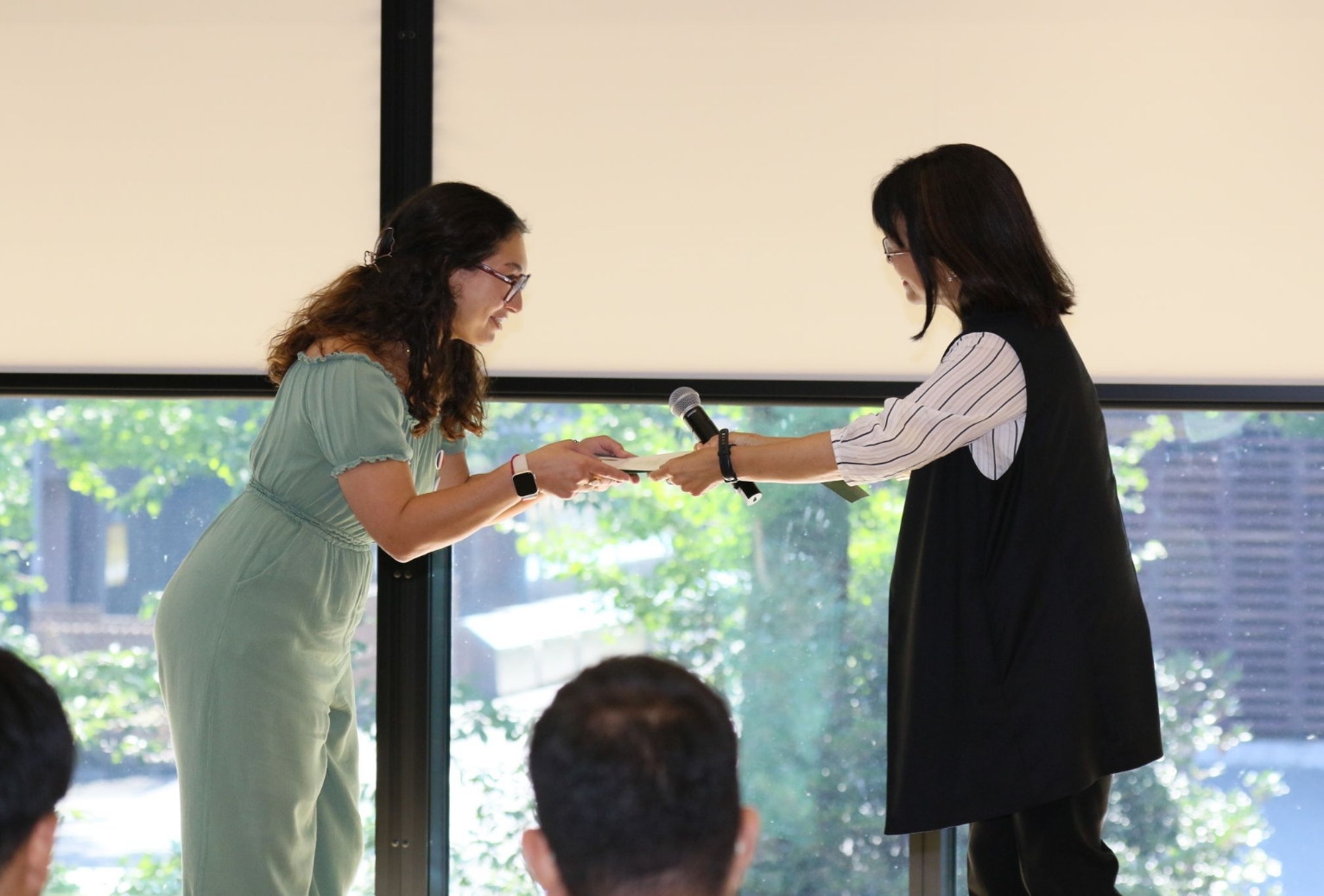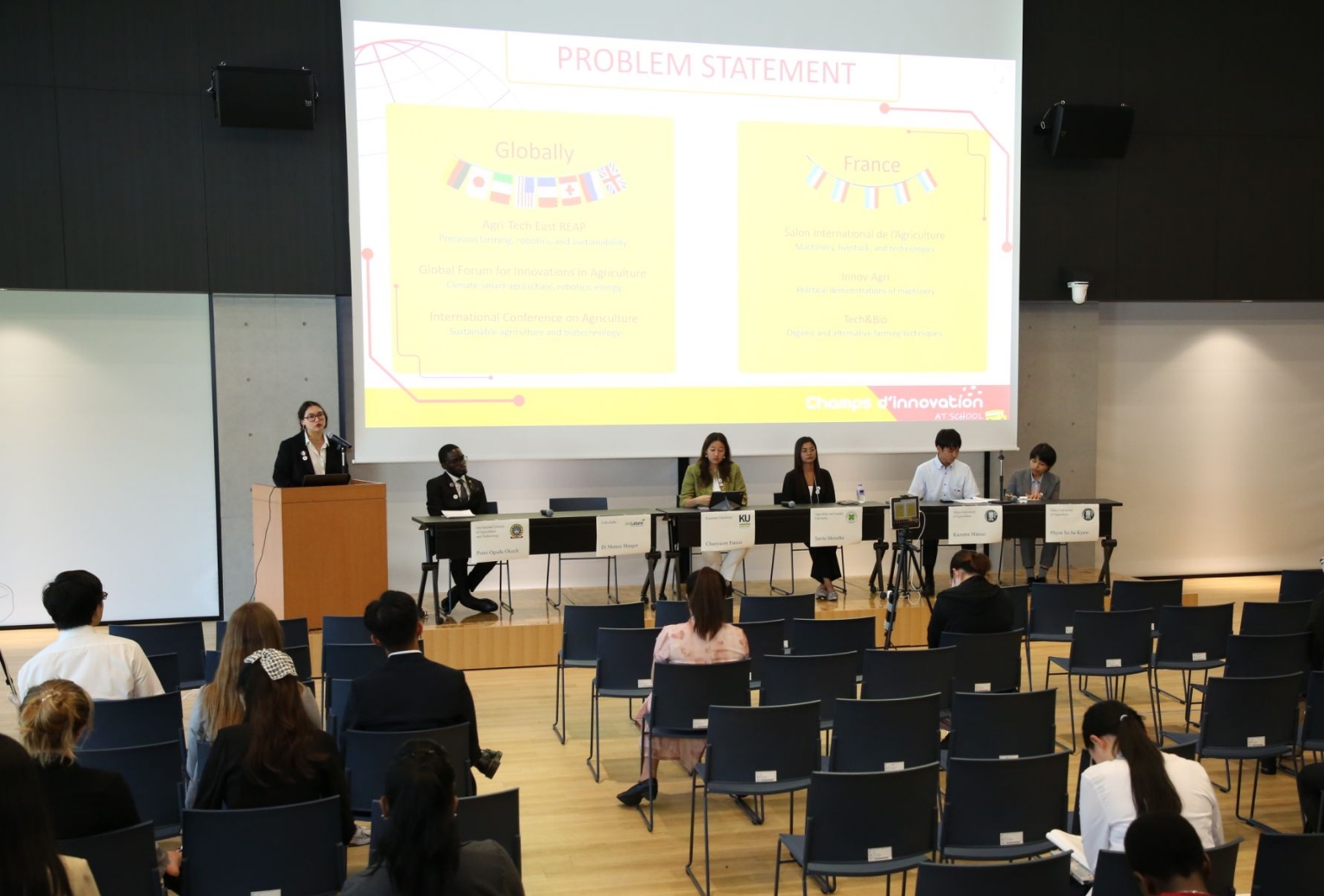Every year in Tokyo, the International Student Summit on Food, Agriculture and the Environment (ISS) brings together committed young minds from all over the world. Margot, a student at UniLaSalle Rouen, was lucky enough to take part, and present an innovative project.
The 23rd edition of the ISS
Created in 2001 by the Tokyo University of Agriculture (Tokyo NODAI), the International Student Summit on Food, Agriculture and the Environment (ISS) brings together dozens of students of agricultural and natural sciences from all over the world. Selected for their academic commitment and dedication, they have the opportunity to discuss and debate the problems and solutions facing their respective communities. A challenge that inspires all participants to action!
This year, some 30 students (including Margot!) from 21 universities in 19 countries and regions around the world contributed to the 23rd edition of the event, whose theme was “Youth Actions and Collaboration towards Resilient Food Systems and Environmental Conservation”. For a few days, the focus is on research and innovation, with each young person presenting a project.

Margot Di Mateo, an agricultural engineering student on an international course (i-SAFE) at UniLaSalle Rouen, was selected by UniLaSalle to represent the student body at the ISS. She landed in Tokyo at the end of July and presented a project developed during her fourth year of study, which has already borne fruit: “Champs d'Innovation at School”. Based in the Normandy region, its aim is to bring together different players in the agricultural sector, from students to companies and innovative start-ups. As Margot explains, organizing forums with the Normandy Regional Chamber of Agriculture is an excellent way of “promoting and explaining concrete, local solutions that educate and empower the younger generation”.
Young and committed to tomorrow's agriculture
Numerous other projects were presented, grouped by theme to focus discussions and workshops on specific problems and concrete solutions. Impressed by one of the projects, Margot tells us. “Beny Mwamhanga presented a start-up catalyzing climate-smart livestock farming in Tanzania, empowering farmers with an app that uses sensor technology to monitor and streamline livestock production.” Awarded both in Tanzania and internationally, it's a resounding success.
Already passionate and eager to take part in more summits like this one, Margot was “struck by the motivation and ingenuity of the various students present and their projects”. The experience has given her a new desire to get involved locally right away.
In the fields of the environment, agriculture and food, major transformations are needed to guarantee the sustainability of our systems. Involving young students fully in the discussions and decisions that will shape our world of tomorrow is one of the very successful objectives of the ISS. For Margot, it was also an opportunity to “learn not only about the students' work, but also and above all about their different cultures”, thanks to the diversity of nationalities present. This open-mindedness and global perspective are essential for sustainable and effective change in the agricultural sector, and Margot is already embodying it brilliantly!


An article written by Zoé Lapeze, a student at UniLaSalle Rouen.






